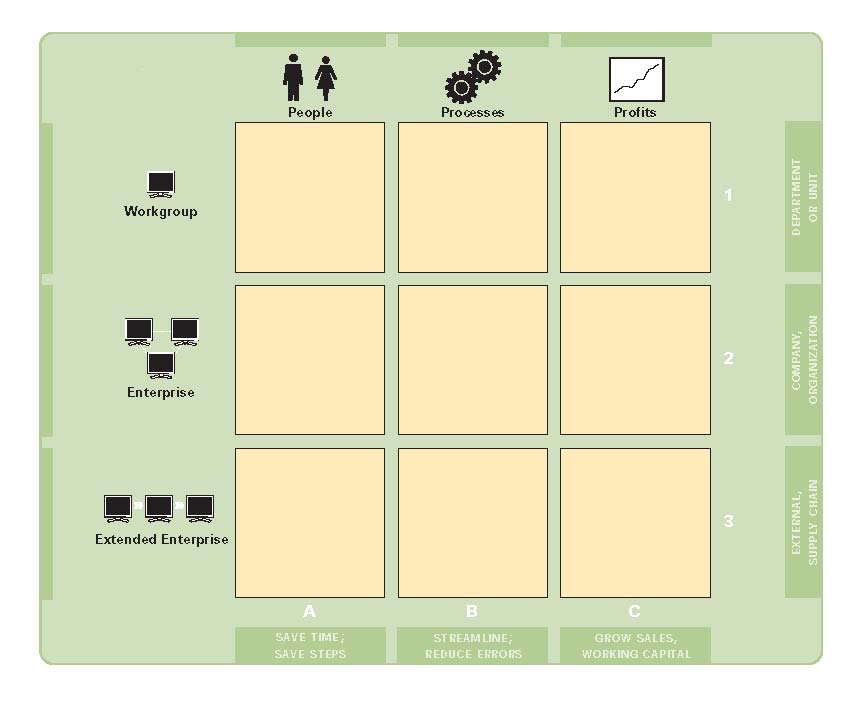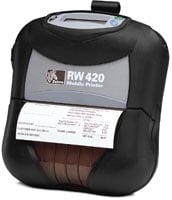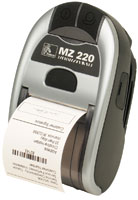Improve Truck Freight Carrier Productivity and Cost-Effectiveness with Mobility Technology
The Case for Automating Freight Logistics
In today’s tough business conditions, over-the-road freight carriers are looking for ways to increase productivity, decrease operating expenses, and retain customers. The cold truth is that unpredictable fuel costs, rising labor rates, and other expenses continue to whittle away at freight trucking profit margins. Just as challenging, truck freight customers demand supply chain management solutions that offer reverse logistics and forward/backward traceability.
As many businesses have already discovered, mobility technology delivers exceptional benefits to a wide range of operations. Handheld computers, networking, and mobile thermal printers are proven productivity enhancers. When deployed to truck freight carriers, drivers could quickly enter information into networked handheld computers, scan labels, or tag shipments with bar code or radio frequency identification (RFID) labels. In fact, personnel throughout a trucking enterprise could benefit from instant access to accurate information—while in the office, at the customer location, or on the road.
This white paper discusses key considerations when selecting mobility solutions, and unveils how mobilityenabled operations can improve freight trucking efficiency, reduce operating expenses, and boost customer satisfaction.
The Business Value of Mobility Technology
To help identify, classify, and categorize the benefits of mobility technology across a trucking organization, Zebra developed the Zebra Business Value Map. The map relates how mobile computing and printing applications affect people, processes, and profits.

Zebra Mobile Printer Batteries Tips
Frequently asked questions and tips for your Zebra mobile printer batteries
Why is it beneficial to use a Zebra-branded battery?
Zebra batteries provide maximum run-time, they assure maximum cell life, and they utilize protective circuitry to guard against premature failure.
What is the difference between the various battery technologies?
| Battery Technology | Used in | Advantages |
|---|---|---|
| Nickel Cadmium (NiCd) | Older, end-of-life Zebra products such as the PA™/PT™ series | Older, but reliable, battery technology. Must be conditioned. Can be damaged by repeated charging without fully discharging. This is called the “Memory Effect.†|
| Nickel Metal Hydride (NiMH) | Encore (EOL), Cameo, PS 2100™ series base | These batteries offer capacities up to 30% higher per charge than NiCd batteries of the same physical size. They are less likely to be damaged by the “Memory Effect.†|
| Lithium-Ion (Li-Ion) | QL™ Plus series, RW™ series, MZ series™ PS 2100™ series controller | The newest rechargeable battery chemistry available. The “Memory Effect†does not affect Li-Ion. It can deliver the same capacity and run time in a smaller, lighter pack. The chemistry is most popular in cellular phones, PDAs, data terminals, and laptop products. |
Citizen CMP-20 & CMP-30 Mobile Printers Announced
Citizen Systems America Corporation, a supplier of world-class printing solutions, continues to expand its portfolio of Next Best Mobile Printing Solutions with the introduction of the new CMP-20 and CMP-30 mobile printers. With improved designs, the new models are engineered to provide an unsurpassed customer experience. Compact, robust and powerful, the CMP-20 and CMP-30 printers are ideal “Next Best Mobile Printing Solution for your receipt and labeling needs.
Built with a durable and strong plastic case, and put through the most rigorous quality tests at Citizen’s high end R&D facilities, these new mobile printers feature 2†and 3†receipt and label printing as well as high capacity batteries and media rolls of approximately two inches diameter — thus, allowing for long print runs without changing the media.
“Our mission to grow our share and to be The Next Best Printing Solutions Source is evident with our new and more effective product introductionsâ€, said Robin Pierce, Sr. Marketing Director at Citizen. “These new mobile printers will allow our channel partners to take advantage of a rapidly growing mobile printing market by generating net new turnover with our excellent Citizen brand and new printersâ€.
Video: Zebra P4T/RP4T Mobile Thermal Transfer Printer
Zebra brings you the world’s first mobile thermal transfer printer with optional RFID upgradability. With the P4T, you can print long-life bar code labels and documents up to 4″ wide that withstand harsh and outdoor environments.
ECHO Inc. Achieves 99.9 Percent Distribution Accuracy, Better Customer Service with Mobile Printing
Challenge
ECHO parts and finished products—numbering more than 15,000—are housed in a 156,000-square-foot distribution center at the company’s Lake Zurich, Ill., headquarters. Over the years, ECHO’s distribution methods have evolved, increasingly becoming more efficient and customer-focused. ECHO has moved from picking products off a carousel and tagging them for shipping to picking with individual forklifts. Both approaches had their drawbacks in terms of efficiency and accuracy.
As the company’s volume increased, it needed a more precise and clear method of picking and labeling to improve internal efficiency and customer satisfaction.
Solution
In the mid-’90s, ECHO implemented bar code printing in every step of its process, from manufacturing to receiving to labeling to picking and shipping. Later, the move to a wireless mobile bar code solution transformed its distribution center.
The company brought in Zebra® QL 420 Plus direct thermal mobile printers, which work wirelessly with Motorola® MC9090 handheld computers. The QL 420 Plus printer is specifically designed for complex mobile printing applications and built to handle increased levels of wireless security and to process complex labels.
Minneapolis-St. Paul International Airport Police Department Sees 30 Percent Increase in Revenue with E-Citation
Challenge
For resource-constrained police departments, time is money. The faster they can issue citations, the more revenue they bring in to fund the department. Moreover, completing each citation more quickly minimizes safety risks for officers.
With a traditional approach to citations, MSP airport officers spent five to seven minutes handwriting each one and then had to re-enter that data into an office system when their shifts were over. In addition to the redundant data entry, as many as 30 percent of the handwritten paper tickets were subject to typos, illegibility or the elements of Minnesota weather—reducing the department’s ability to collect on citations.
“We always had problems being able to read names and numbers or ink would wash away in the rain,†said Officer Jeff Mademann, MSP International Airport PD. “We needed something that was easy to use and would allow officers to pay more attention to offenders and less on paperwork.â€
Solution
After years of looking for a better approach, the MSP airport police department found a solution.
Queues disappear with wireless printing solution
 Byggmax sells building materials and has premises at 27 locations in Sweden. The product range consists of base products needed for construction work e.g. timber, insulation materials, plaster and cement. They have a drive-in service, which means that the customers drive their cars into the premises and load the goods they require from the yard and the storage area, themselves. Byggmax staff register the goods in the cars, whereupon the customers are given a sales order to take to the checkout. It used to take longer, as the sales staff wrote down all items by hand on the sales order and made all calculations on a pocket calculator. At the checkout the items on the paperwork were registered together with those the customer wished to purchase from within the store. There were often problems with queues forming, when the checkout staff needed to enter all the items on the hand-written slip.
Byggmax sells building materials and has premises at 27 locations in Sweden. The product range consists of base products needed for construction work e.g. timber, insulation materials, plaster and cement. They have a drive-in service, which means that the customers drive their cars into the premises and load the goods they require from the yard and the storage area, themselves. Byggmax staff register the goods in the cars, whereupon the customers are given a sales order to take to the checkout. It used to take longer, as the sales staff wrote down all items by hand on the sales order and made all calculations on a pocket calculator. At the checkout the items on the paperwork were registered together with those the customer wished to purchase from within the store. There were often problems with queues forming, when the checkout staff needed to enter all the items on the hand-written slip.
After a six month trial period of the new system, it has been installed in all stores. The sales staff at Byggmax are equipped with handheld computers and mobile printers from Zebra Technologies. The handheld computers always have an up-to-date item register and communicate wirelessly both with the checkout environment and with the mobile printers. The sales order is printed out for the customer within one or two seconds of the goods being keyed in. There is a bar code on the slip referring to the customer (usually the registration number of the car). The checkout staff only need to scan the bar code in order to take payment for the goods, which the customer has loaded into the car. If a customer leaves the premises without having paid, the registration number can be used to contact the customer.
Pricing Accuracy Through Wireless Portable Printing
 Challenge
Challenge
One of America’s largest retailers faces a daily challenge of maintaining accurate pricing of all merchandise across its entire chain of stores.
Further complicating the task is that the prices of more than 1000 products change every week, and up to five percent of the company’s inventory changes in any given month. As recently as the early 1990s, these changes were sent via fax or e-mail and were printed out by store managers at each location. A night shift was required to print out appropriate shelf labels, canvass the store to put these labels on corresponding shelves, and manually update pricing information in the store’s main computer for the check-out terminals. For the average store, these tasks required 20 employees to work six hours after the store closed.
“Every week we’d forfeit nearly 20 percent of our profits from each promotion through the cost of setting up for the sale,†recalled the chain’s operations manager. “Even after spending all of this time and money, human error was nearly out of control. The price of merchandise on the shelf frequently didn’t match the price at checkout. Our customers were frustrated, which was compromising customer loyalty and company reputation.â€
Solution
To correct these problems, the retail chain adopted a corporate-wide pricing network with frame-relay host-to-store communication; a wireless, 2.4 GHz frequency-hopping LAN in every store, and network addressable Zebra® portable mobile printers to move the operation onto the floor.
Today, the company uses a team of price checkers to update prices and ensure that shelf labels match checkout counter prices. Each price checker is armed with a small handheld terminal capable of scanning existing shelf labels and a Zebra portable mobile printer that wirelessly connects both devices to the store’s network.
Purchase Goods Anywhere: A Checkout Counter on the Move
 Challenge
Challenge
During the holiday season, long checkout lines mean angry customers, decreased customer loyalty and lost sales. To keep customers in the holiday spirit, one of the nation’s largest discount chains tested a mobile checkout system to eliminate check-out lines, even during the busiest shopping days of the year.
“Even with all of our check-out counters open and our associates working as fast as possible, we still lost dozens of sales each day because people were scared away by the long lines during the holiday season,†commented one store manager. “We had to find a way to add check-out lines during our busiest time. Temporary mobile checkout was the only answer.â€
Solution
For the store’s mobile checkout needs, the company turned to Zebra printers—the same brand of printer it relies on to label goods in its critical shipping and receiving operations. “We had used Zebra printers in a variety of logistics applications and they always worked flawlessly,†noted the company’s retail systems manager. “As a very public operation, our check-out operations system had to be fail-proof. Once we realized that Zebra offered a perfect retail solution, we never considered another vendor.â€
Bluetooth Mobile Printers Keeps Blue Devils Mobile
Bluetooth Mobile Printers Keeps Blue Devils Mobile
 Challenge
Challenge
Whether watching their beloved Blue Devils play basketball or going about their business on campus, students at Duke University in Durham, N.C., are seldom standing still. The university’s widespread use of handheld computers serves students on the go with mobile concessions at events, portable point-of-sale for busy bookstores and other innovative offerings. Now Duke is implementing Zebra MZ 220 mobile printers with Bluetooth® wireless technology and new handheld computers so it can create more mobility and innovation.
The DukeCard is the school’s student ID card, which can also be used for purchases and services throughout campus and the surrounding community. The DukeCard office supports 600,000 daily transactions from nearly 1,800 card readers. Duke University Stores, which runs 25 different retail and office services operations on campus, generates the most sales per student of all independent college store systems in the United States. Campus retailers and student organizations can also process DukeCard transactions using the hand-held computer’s built-in card reader.
“Bluetooth has given us a lot of flexibility. Once we got away from a tethered solution, we could use our mobile devices in places where it was difficult in the past,†says Matthew Drummond, director of Duke University’s DukeCard office. “The system is very convenient to use, and lets us offer mobile concessions at sporting events, concerts and other events.â€
All financial transactions must comply with federal electronic funds transfer rules, including the Regulation E requirement to offer a receipt with any transaction. When Duke wanted to expand its services, it needed to find mobile printers that could meet both common and unique requirements.
“Durability is important in our mobile equipment. We hand these devices out to college students. They carry them all around campus. They’ll put them in their book bags, forget about them, and throw the book bags around,†says Drummond. “Battery life was also very important. Student groups can check out the devices for up to a week at a time, so we wanted to get a week’s worth of use on a single charge. We didn’t want to hand out chargers and worry about keeping track of them.â€
Because the mobile system is used by student organizations on a temporary basis, it needed to be easy to learn and use for workers with no previous experience and limited training.




